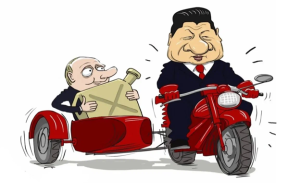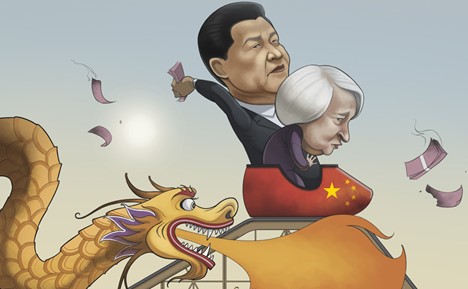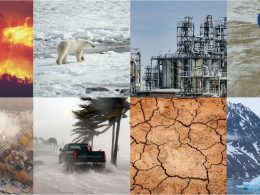Transformation of China’s Industrial Sector
China’s economic growth over the past few decades has been nothing short of remarkable. The country has transformed itself from a primarily agrarian society to a global economic powerhouse, with its industrial sector playing a significant role in this transformation. China’s rapid industrialization has not only driven its own economic growth but has also had a major impact on global markets.
The modernization of China’s industrial sector has had far-reaching effects on global supply chains. As China has become the world’s largest manufacturing hub, the efficiency and scale of its production have had a profound impact on the way goods are produced and distributed around the world. Many multinational companies rely on China as a key link in their supply chains, and any disruptions in China’s industrial sector can have ripple effects throughout the global economy.
Impact on Global Supply Chains

China’s economic shift has had a significant impact on global supply chains. As China has become more integrated into the global economy, any changes in its economic policies or industrial sector can have wide-ranging effects on businesses around the world. For example, disruptions in China’s manufacturing sector due to factors such as trade tensions or natural disasters can lead to shortages of key components and products in other countries.
Furthermore, China’s economic shift has also affected global trade relations. As China has grown into a major economic player, many countries have shifted their trade policies to accommodate China’s influence. This has led to a rebalancing of global trade relations, with China playing a more central role in shaping the rules and norms of international trade.
Shift in Trade Relations
China’s economic growth has had a profound impact on global trade relations. As China has become the world’s largest exporter and second-largest importer, many countries have had to adjust their trade policies to account for China’s dominant position in the global market. This shift towards China as a major economic player has led to changes in trade agreements, tariffs, and regulations that have reshaped the global trading landscape.
Additionally, China’s economic growth has also influenced global financial markets. The size and scale of China’s economy have made it a key player in global financial markets, with any shifts in China’s economic policies or performance having a ripple effect on global economic stability. As China continues to grow and modernize its economy, its influence on global financial markets is only expected to increase.
Influence on Global Financial Markets
China’s economic growth has had a significant impact on global financial markets. As one of the world’s largest economies, any changes in China’s economic policies or performance can have wide-ranging effects on global financial stability. For example, fluctuations in China’s stock market or currency can send shockwaves through other financial markets around the world.
Furthermore, the shift in China’s economy towards a more consumer-driven model has also influenced global economic stability. As China’s middle class continues to grow and consume more goods and services, the demand for resources and products from other countries has increased. This has led to changes in global resource consumption and pollution levels, as China’s economic shift has put pressure on the environment and sustainability efforts worldwide.
Environmental and Sustainability Considerations
China’s policies have had a significant impact on global environmental sustainability. As the world’s largest emitter of greenhouse gases, China’s industrial sector has a major influence on global pollution levels and climate change. The country’s rapid industrialization has led to increased demand for resources and energy, putting a strain on the environment and natural resources.
Furthermore, China’s economic shift has also influenced global resource consumption. As China continues to grow and modernize its economy, the demand for raw materials and energy sources has increased, leading to concerns about resource depletion and environmental degradation. In order to address these challenges, China has begun to implement policies aimed at promoting sustainability and reducing its environmental impact, which will have far-reaching effects on global environmental efforts.










